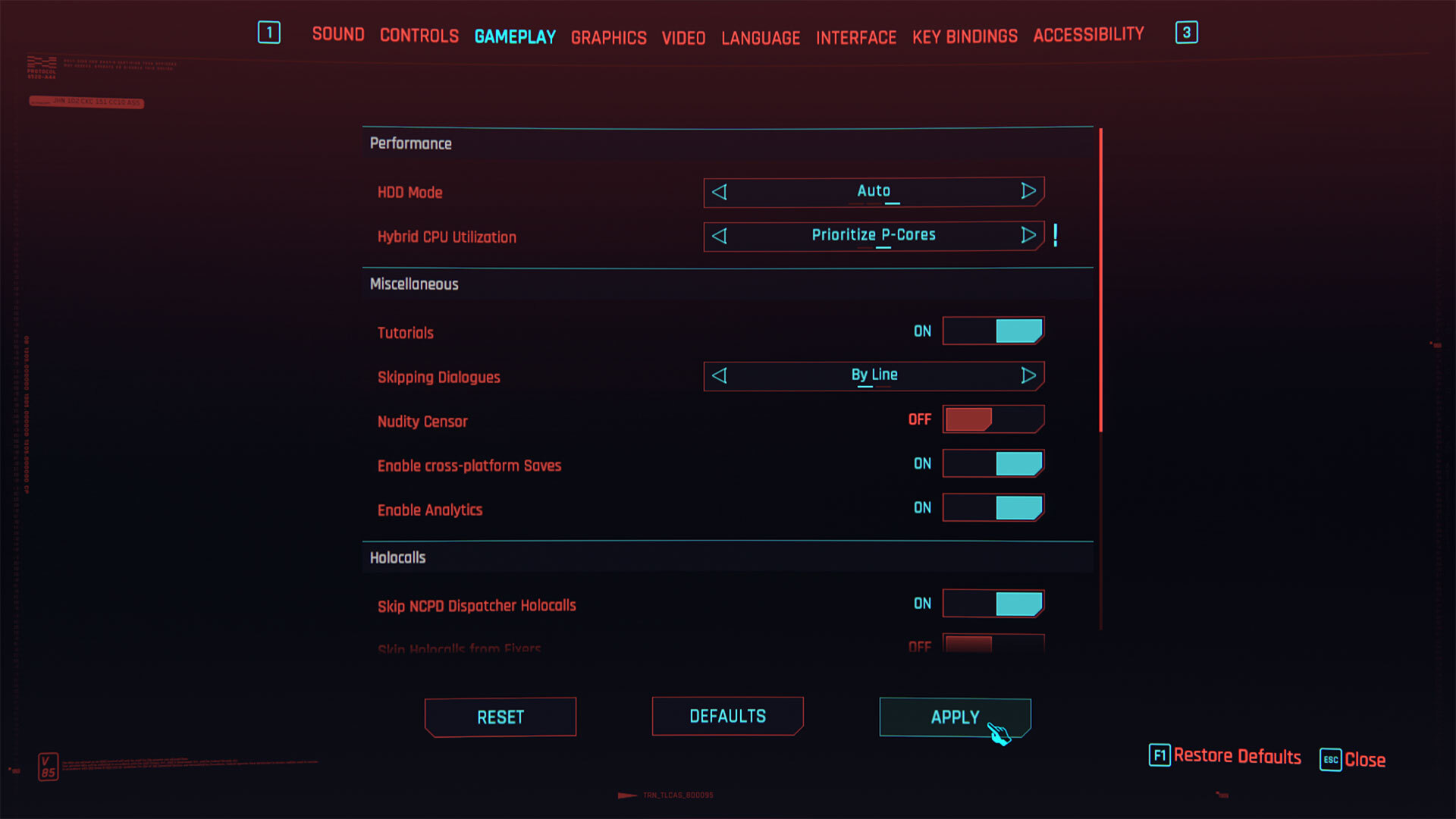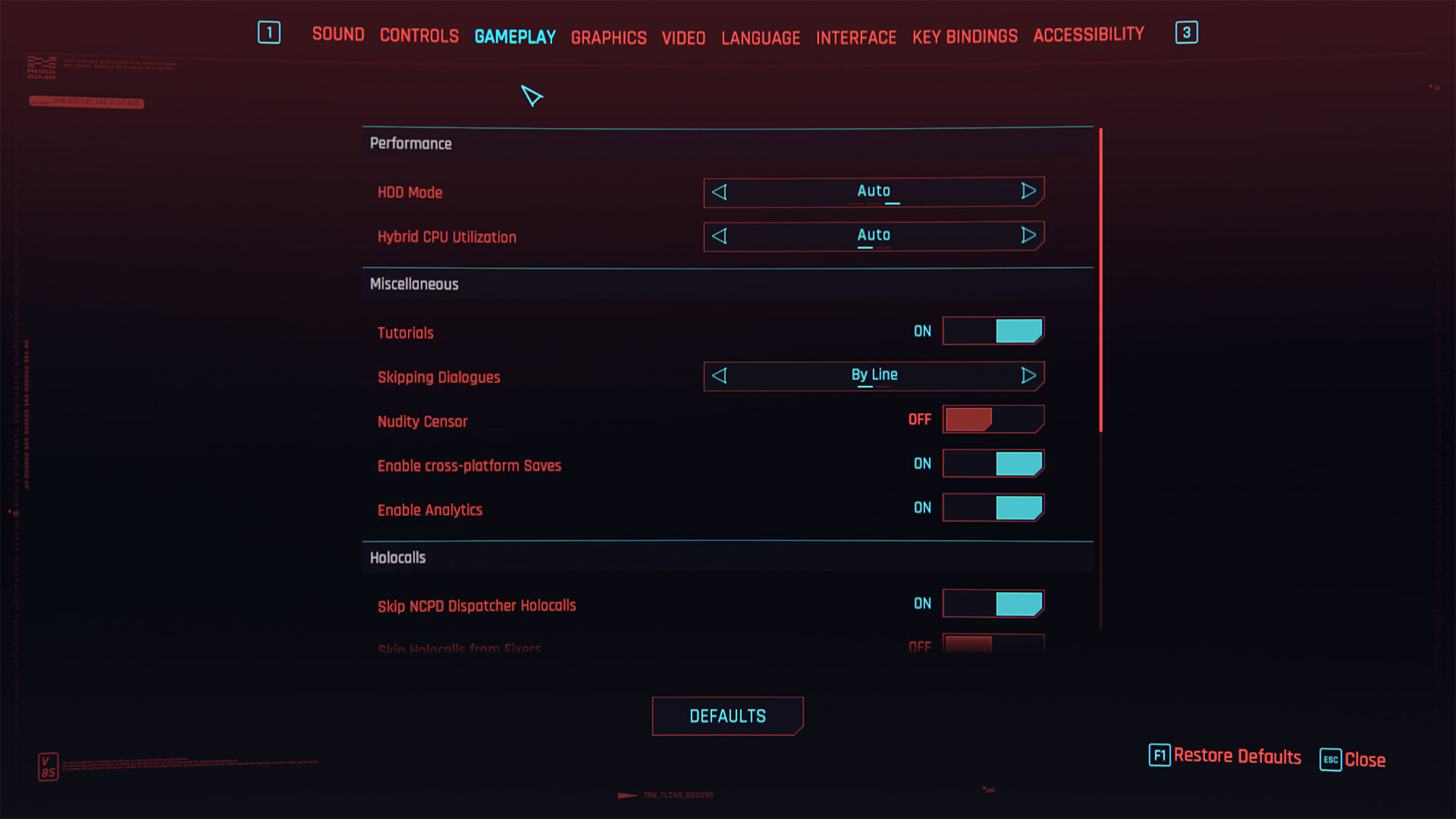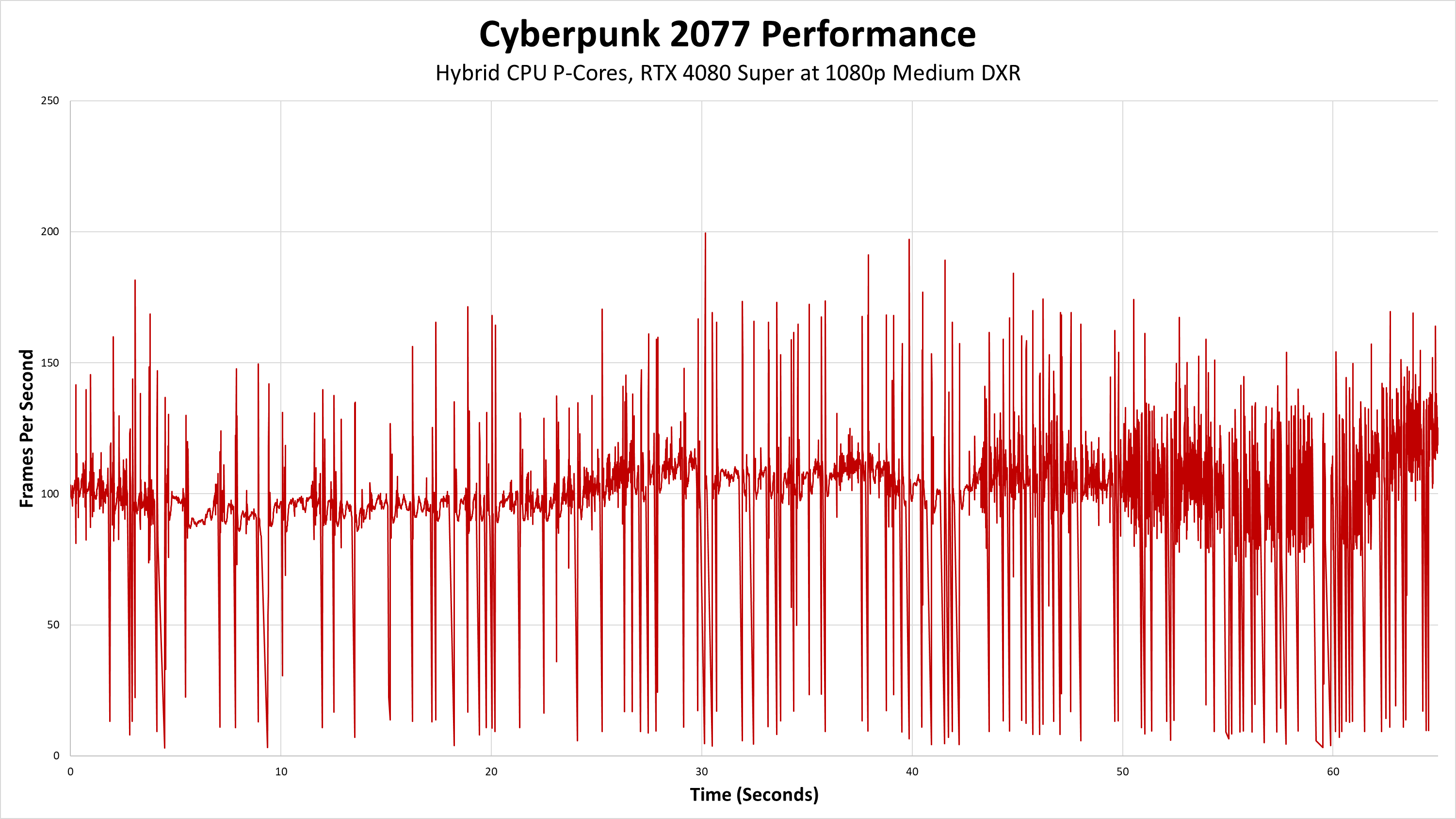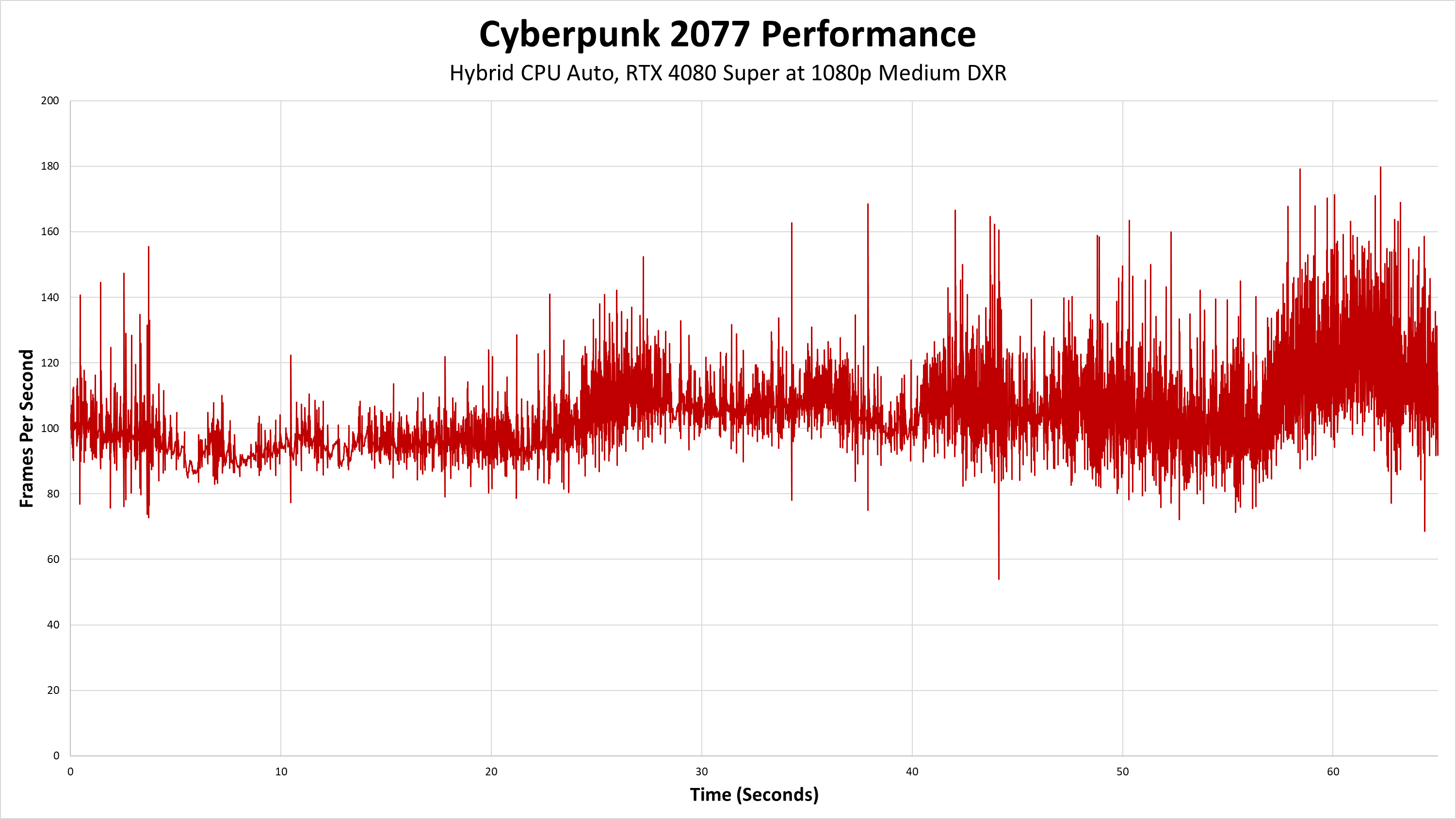
Cyberpunk 2077 is now the first game that can prioritize P-Cores in hybrid CPUs to boost FPS and iron out performance problems. The new feature arrived in patch 2.11 and can be found in the game's gameplay sub-menu.
The new CPU optimization feature overrides Windows' core scheduler, forcing Cyberpunk 2077 to run on the CPU's performance cores — no matter what. We took the new feature for a spin, but we ran into some performance problems. We weren't the only ones. Now, a new patch 2.12 has cleaned things up and appears to be working properly.
The new feature is called Hybrid CPU Utilization and it has two modes. One is the automatic setting that allows the OS to do all the heavy lifting, while the other is called "Prioritize P-Cores" and it forces the game to run on the P-Cores only.
The idea behind this new setting is smart, and should — in theory — resolve scheduling issues that some users might have with the game. Improper core utilization on chips with performance and efficiency cores can cause major performance issues in CPU-bound games if the game is accidentally run on the CPU's E-Cores (which are, in most cases, much slower than its P-Cores).
Performance issues with Windows' scheduler aren't very widespread, but it isn't perfect. There are times when tasks will get loaded onto the wrong cores — even on Intel's hybrid CPUs, which come with Thread Director. Having a manual override in-game can potentially fix this problem without the user needing to jump through hoops and do things like disable the E-Cores in BIOS.




Cyberpunk 2077's initial implementation of the Hybrid CPU Utilization setting was not great. We tested it using a Raptor Lake i9-13900K and an Nvidia RTX 4080 Super, running the game on medium settings with DXR ray tracing enabled, and found serious micro-stuttering problems when the feature was turned on. The performance disparity was so great it was clear there was something wrong.
The 2.11 patch notes state that CD Projekt Red worked with Intel to sort out the stuttering problems, and we tested it and found things were now behaving properly. And by "behaving properly" we mean there was no serious loss in performance, but there was also no noteworthy gain in performance either.
We hadn't personally noticed any serious issues with Cyberpunk 2077's CPU utilization in the past, but if you have experienced problems and are using an Intel 12th, 13th, or 14th Gen CPU with a hybrid architecture — P-cores and E-cores — the new feature my help out. That doesn't mean all games should follow the same approach, as there are conceivably games where scheduling certain tasks on the E-cores makes sense. But having better tools to deal with hybrid CPU architectures could become increasingly important in the future.
Note: This article was originally posted on January 31, 2024, after the 2.11 patch came out. We have updated the text as of March 1, 2024, now that the 2.12 patch has fixed the problems noted in our original report.







